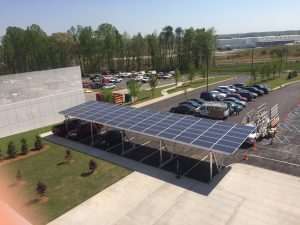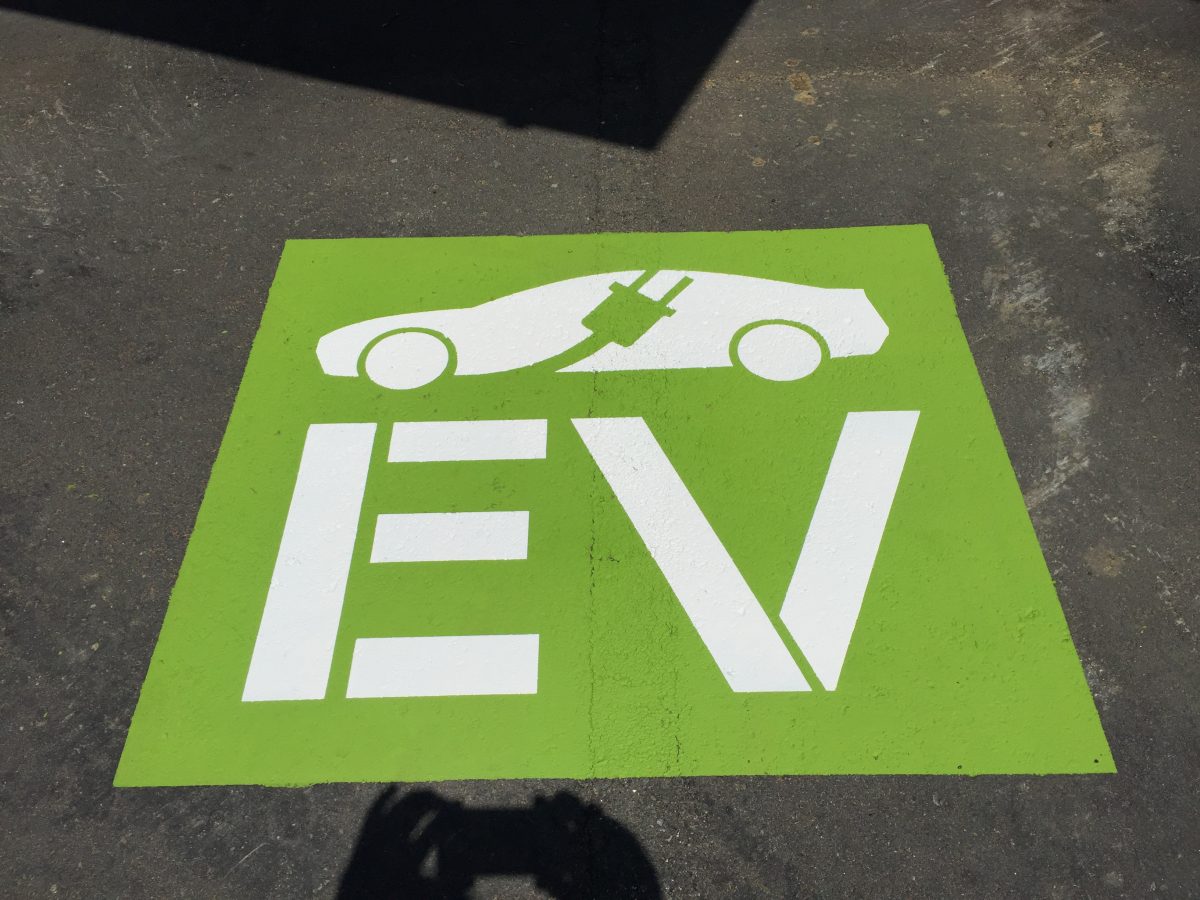By Drew Chandler, Energy Specialist
Getting Rid of Gas
So you ditched your gas guzzling internal combustion engine vehicle (ICE) for an electric vehicle (EV)–congratulations! In addition to being quiet, low maintenance, and fun to drive, EV’s powered by the electric grid are undoubtedly cleaner than their ICE counterparts. According to the US Department of Energy’s Alternative Fuels Data Center, the average gas-powered vehicle emits the equivalent of 11,435 lbs of carbon dioxide per year. An average EV charged by the electric grid in North Carolina, which is powered mainly by burning fossil fuels, is responsible for releasing roughly 4,185 lbs of CO2 into the atmosphere each year.
Electric Vehicle’s Potential

While EV’s powered by the electric grid offer close to a threefold reduction in emissions compared to ICE vehicles, this barely scratches the surface of an EV’s potential to decrease greenhouse gas emissions. Many of our EV driving clients want to take it a step further by using solar photovoltaics and battery backup, like Tesla Powerwall, to generate and store the electricity needed to power their vehicles, thus reducing their transportation related emissions to zero.
Charging EV’s with Solar Makes Sense

It may come as a surprise to people that it is not only completely feasible to power your EV with a home solar system, it is also usually cheaper than charging your car with electricity from the grid!
Below, we have put together a table showing what size solar array you would need to offset your EV’s charging needs, as well as the cost per kWh of solar electricity, and the cost per kWh of electricity purchased for the grid. Most solar panels have a 25-year power production warranty and will continue producing electricity well beyond the 20 years foretasted here. *Below are estimations & averages, please contact us and we will provide a free customized analysis.
|
Average miles driven per day |
Size of solar array needed to offset EV charging | Average cost of solar array after federal tax incentive | Cost per kWh over 20 year period |
National average cost per kWh electricity |
| 10 | 1.0 kW | $3,150.00 | $0.12 | $0.12 |
| 25 | 2.25kW | $6,300.00 | $0.10 | $0.12 |
| 50 | 4.5kW | $10,080.00 | $0.08 | $0.12 |
| 100 | 9.0 kW | $17,010.00 | $0.07 | $0.12 |
If you would like to explore the possibility of eliminating emissions from your EV completely, contact us today for a free consultation! We also install home EV charging stations, and installing a charging station at the same time as a home solar array can help you save money on both.
